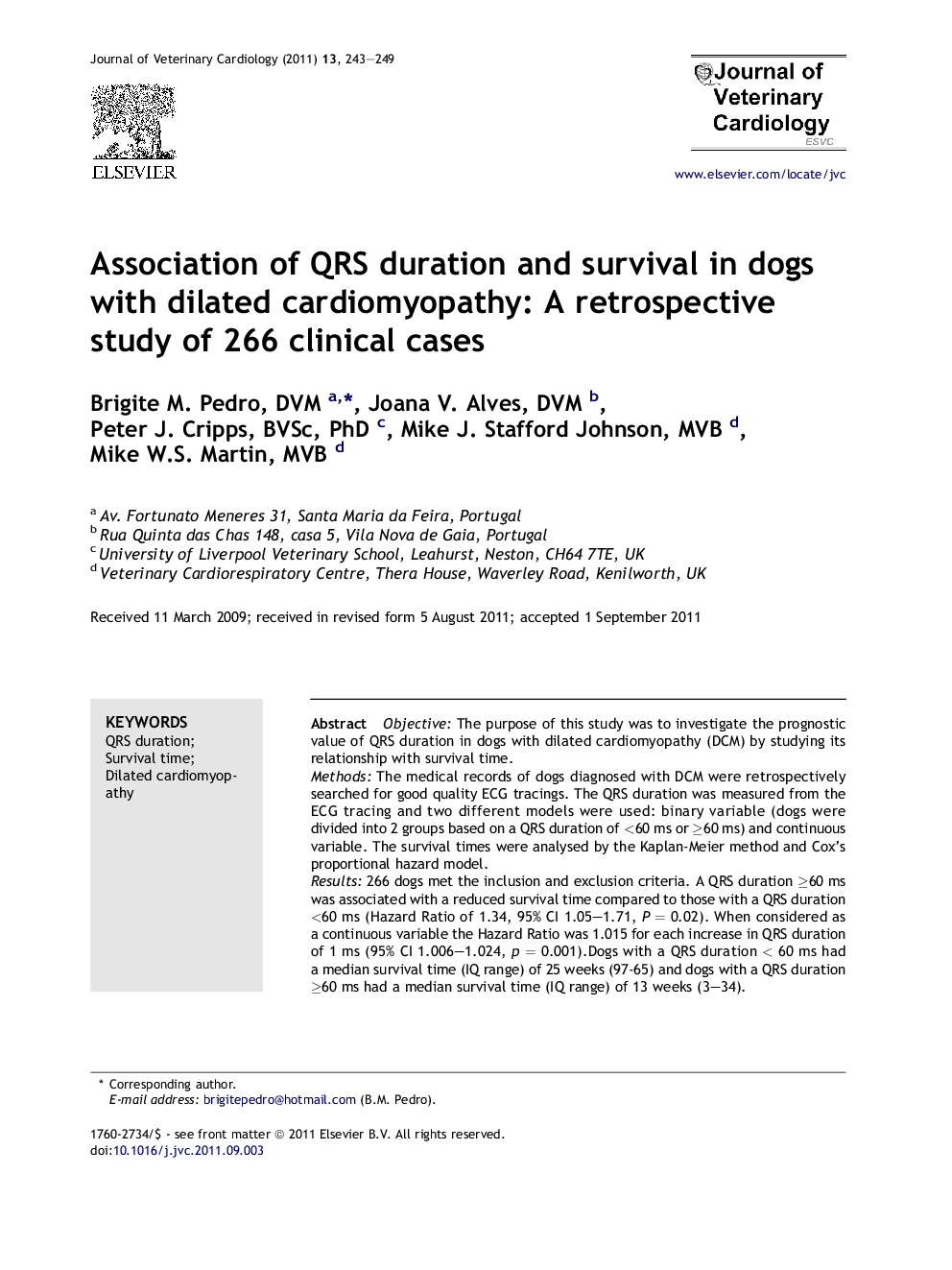| Article ID | Journal | Published Year | Pages | File Type |
|---|---|---|---|---|
| 2400315 | Journal of Veterinary Cardiology | 2011 | 7 Pages |
ObjectiveThe purpose of this study was to investigate the prognostic value of QRS duration in dogs with dilated cardiomyopathy (DCM) by studying its relationship with survival time.MethodsThe medical records of dogs diagnosed with DCM were retrospectively searched for good quality ECG tracings. The QRS duration was measured from the ECG tracing and two different models were used: binary variable (dogs were divided into 2 groups based on a QRS duration of <60 ms or ≥60 ms) and continuous variable. The survival times were analysed by the Kaplan-Meier method and Cox’s proportional hazard model.Results266 dogs met the inclusion and exclusion criteria. A QRS duration ≥60 ms was associated with a reduced survival time compared to those with a QRS duration <60 ms (Hazard Ratio of 1.34, 95% CI 1.05–1.71, P = 0.02). When considered as a continuous variable the Hazard Ratio was 1.015 for each increase in QRS duration of 1 ms (95% CI 1.006–1.024, p = 0.001).Dogs with a QRS duration < 60 ms had a median survival time (IQ range) of 25 weeks (97-65) and dogs with a QRS duration ≥60 ms had a median survival time (IQ range) of 13 weeks (3–34).ConclusionThe measurement of QRS duration is relatively simple to perform from a surface ECG recording. A duration ≥60 ms is associated with shorter survival times in dogs with DCM, which may provide practitioners with additional prognostic information.
